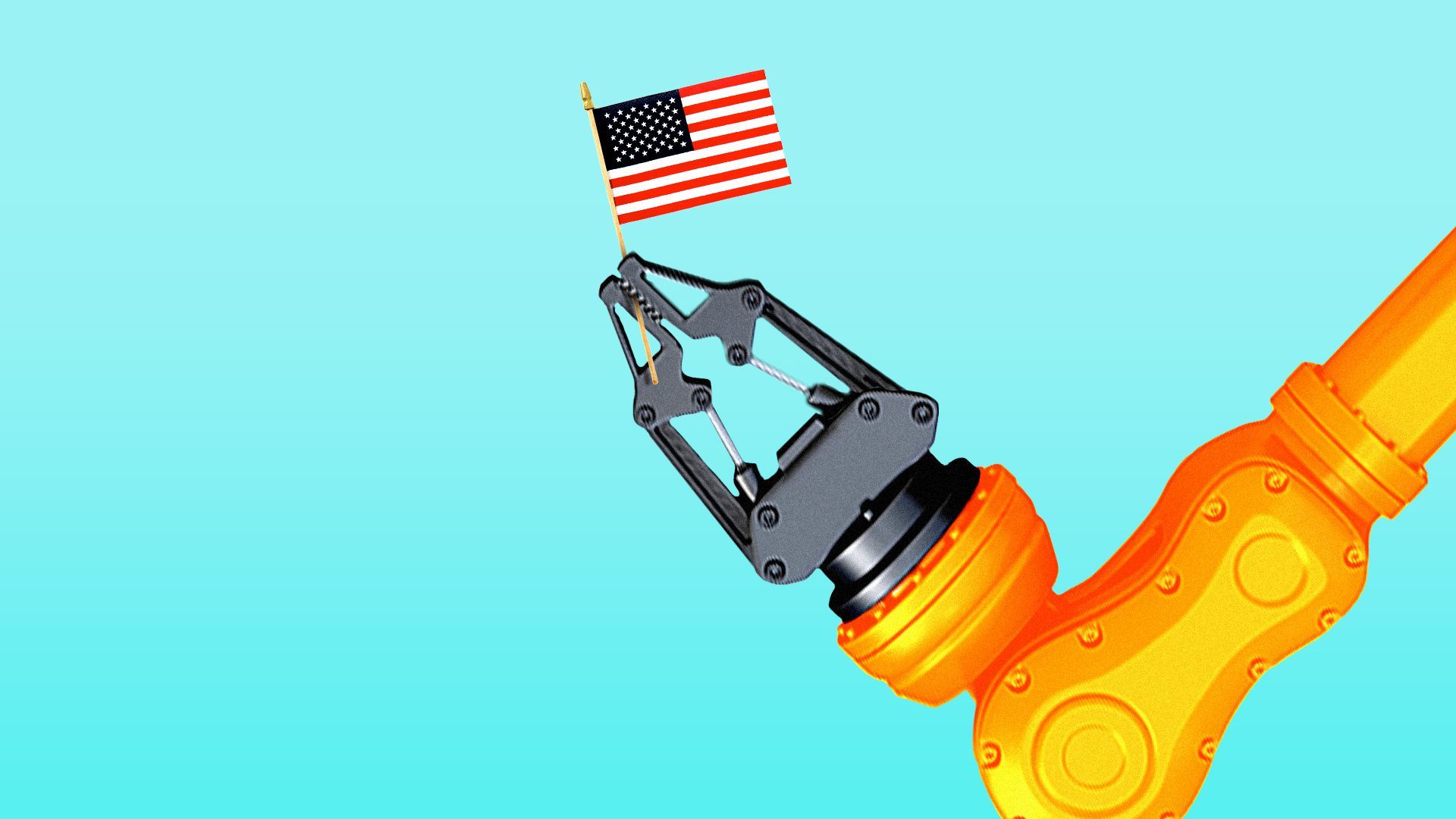U.S. manufacturing has hit an inflection point
Add Axios as your preferred source to
see more of our stories on Google.

Illustration: Aïda Amer/Axios
The U.S. manufacturing sector is at a crossroads: Proponents of President Biden's Build Back Better initiative argue that if focus was to be retrained on it, the sector could provide improved and sustainable economic growth after decades of shedding jobs and scale to other countries.
Why it matters: Biden's ambitious plan makes it clear that infrastructure and manufacturing investments are top priorities, but history is not on his side and Congress is already asking for plenty of compromises.
Where it stands: The pandemic-induced PPE crisis and recent chip supply shortages have highlighted the drawbacks of globalization and the U.S. dependence on foreign nations to provide a multitude of necessary goods and supplies.
What we're hearing: The pandemic can serve as a key moment to “revitalize growth and competitiveness” in 16 process sectors of manufacturing, which could help the U.S. grow annual GDP by more than 15% above baseline forecasts and add up to 1.5 million jobs by 2030, a new independent report from McKinsey Global Institute suggests.
- This isn't about toys and clothing: Among the 16 recommended focus sectors, semiconductors, medical devices, communications equipment and electronics are seeing 6% to 11% global GDP growth annually.
Between the lines: McKinsey does not make policy recommendations, senior partner Katy George tells Axios, but "we have been beating this drum for a long time."
- "If you look at past efforts to revitalize manufacturing, it doesn't add up to a cohesive strategy," she adds. Federal, state and local governments have spent more than $85 billion on 15,000 initiatives over 10 years, while GM alone spends $80 billion a year across 15,000 global suppliers.
But, but, but: While edicts like Biden's ''buy American" executive order demonstrate the president's penchant for investment, critics say such laws raise costs and lower quality, and are too easily circumvented by savvy multinational companies.
- To wit, Adam Posen, president of the Peterson Institute for International Economics, writes in Foreign Affairs (paywall) Monday that the U.S. needs to stop fixating on manufacturing jobs as a driver for growth, and should focus more on universal benefits and embrace international expansion and competition.
- U.S. politicians' "nostalgia" and "sentimental obsession" with manufacturing is "not a good look for a progressive agenda," Posen argues — and it enables manufacturing companies to feel they are "too big to fail," potentially leading to production monopolies that drive up consumer prices and drive down wages.
- Further, manufacturing employment has been falling around the world in high-income economies, irrespective of their trade balances, he notes.
The last word: There is clear White House and bipartisan Congressional support for increased investment in manufacturing, but what that support ultimately looks like will determine the shape and scale of the industry.
